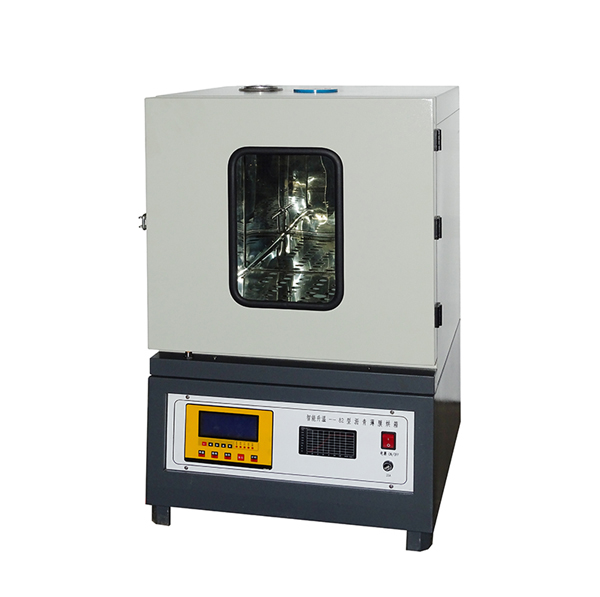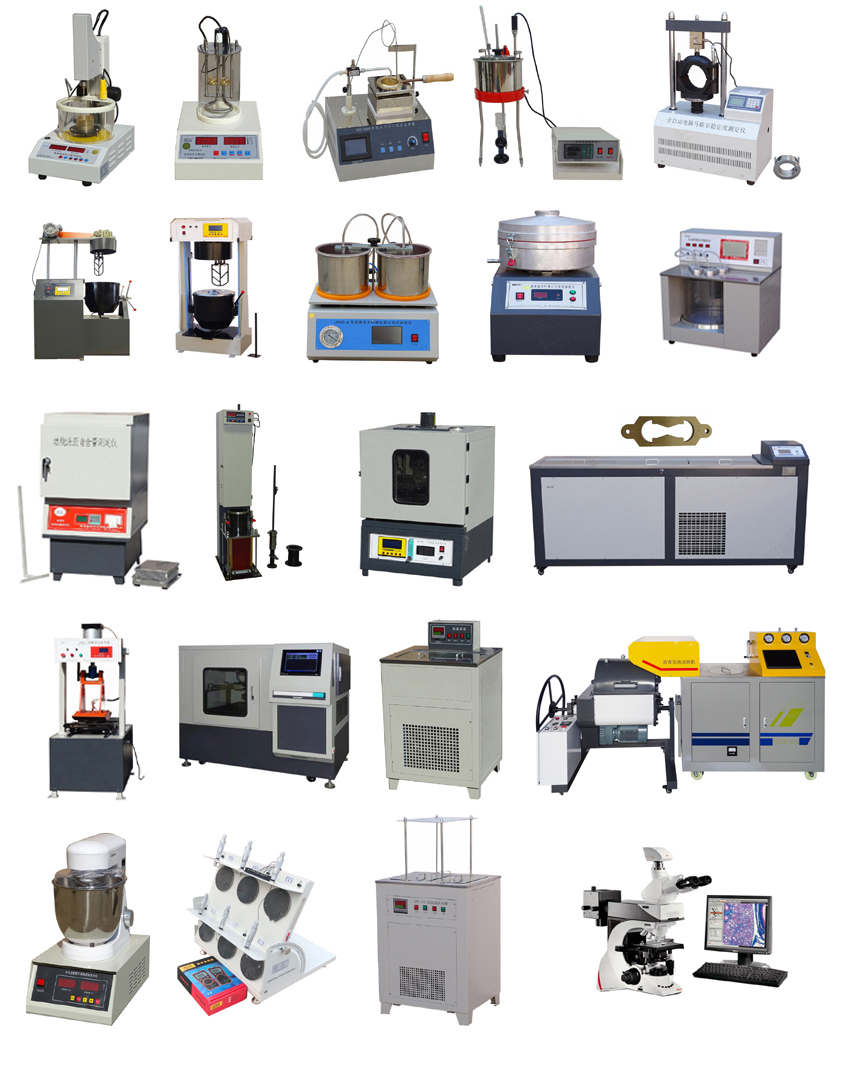Asphalt Laboratory Film Oven
Asphalt Laboratory Film Oven
I. Overview
The asphalt film oven (referred to as Model 82 oven) is designed and manufactured in accordance with the requirements of T 0609-2011 “Asphalt Film Heating Test” in the “Test Procedures for Asphalt and Asphalt Mixture in Highway Engineering” (JTG E20-2011), a national industry standard of the People’s Republic of China. It is suitable for determining the mass loss of road petroleum asphalt after film heating. According to needs, it can also be used to measure the changes in properties such as penetration, softening point, brittle point and ductility of the asphalt residue after film heating, to evaluate the aging resistance of the asphalt.
II. Main Technical Parameters and Indicators
1. Working power supply: AC 220V ± 10%, 50Hz;
2.Rated power: 3.2 kW;
3. Workshop temperature: 163℃ ± 0.5℃
4. Temperature control accuracy: ±0.5℃
5. Rotating disc speed: 5.5 r/min ± 1 r/min
6. Sample quantity: 4 pieces
7. Studio dimensions: 450mm × 450mm × 510mm (length × width × height)
8. Ambient temperature: (5~50)℃
Weight: 50 kg
The Importance of Asphalt Laboratory Thin Film Ovens in Modern Asphalt Testing
In the field of civil engineering and construction, the quality of asphalt is crucial to the service life and durability of roads, pavements and other infrastructure. The Asphalt Lab Thin Film Oven is one of the key tools for evaluating asphalt performance. This specialized equipment plays a vital role in simulating the aging process of asphalt, allowing engineers and researchers to evaluate its performance under various conditions.
What is an Asphalt Lab Film Oven?
The Asphalt Lab Thin Film Oven is a controlled environment test chamber used to heat asphalt samples at a specific temperature for extended periods of time. The main purpose of this oven is to simulate the aging effects that asphalt undergoes when exposed to environmental factors such as heat, UV rays, and oxygen. By subjecting asphalt to these conditions, engineers can observe changes in its physical and chemical properties, which is critical to predicting how it will perform in real-world applications.
Key Features and Functionality
Asphalt laboratory film ovens are equipped with advanced features to ensure precise temperature control and uniform heating. Typically, these ovens can maintain temperatures between 60°C and 200°C, depending on the specific test requirements. The design of the oven allows the asphalt sample to be placed in a shallow pan, ensuring that the material is heated evenly.
One of the highlights of the Asphalt Lab asphalt film oven is its ability to simulate long-term aging processes in a very short time. Traditional aging methods may take years, but using this oven, engineers can get similar results in just a few days. This efficiency not only speeds up the research and development process, but also helps to provide high-quality asphalt mixtures for construction projects in a timely manner.
Application in asphalt testing
The Asphalt Laboratory Thin Film Oven is primarily used to conduct the Rolling Thin Film Oven Test (RTFOT), a standard procedure established by the American Association of State Highway and Transportation Officials (AASHTO). The RTFOT evaluates the short-term aging of asphalt binders by simulating the effects of heat and air exposure during the asphalt mixing and paving process.
In addition to the RTFOT test, the oven is also used for other tests such as the Pressure Aging Vessel (PAV) test, which is used to evaluate the long-term aging of asphalt binders. By understanding how asphalt performs under different aging conditions, engineers can make informed decisions about material selection and formulation, ultimately creating more durable and resilient roads.
Benefits of Using an Asphalt Lab Film Oven
Using an asphalt laboratory film oven provides researchers and engineers with a number of benefits. First, it improves the accuracy of asphalt testing by providing a controlled environment that minimizes external variables. This generates more reliable data, which is critical to making informed decisions about asphalt mixes.
Secondly, the furnace’s effective simulation of the aging process can shorten development cycles, which is particularly important in an industry with a fast pace and tight project deadlines.
Ultimately, insights gained using the Asphalt Lab Thin Film Oven contribute to overall improvements in asphalt technology. By understanding how different formulations react to aging, engineers can innovate and develop new materials to meet the changing needs of infrastructure projects.
In short
In summary, the AsphaltLab Thin Film Oven is an indispensable tool in the field of asphalt testing. It is able to accurately and efficiently simulate the aging process, providing valuable insights that drive advancements in asphalt technology. As the demand for durable and sustainable infrastructure continues to grow, the AsphaltLab Thin Film Oven will continue to play a key role in ensuring the quality and performance of asphalt materials used in construction.




















